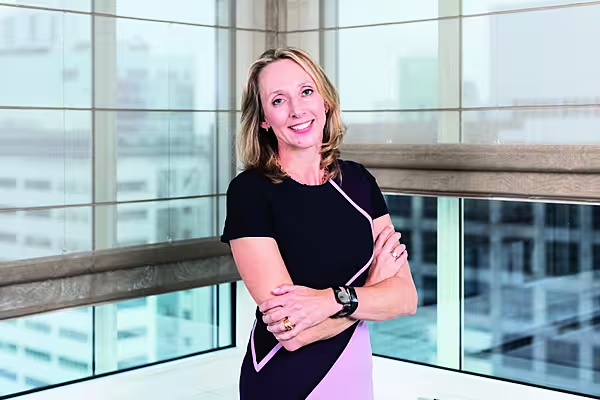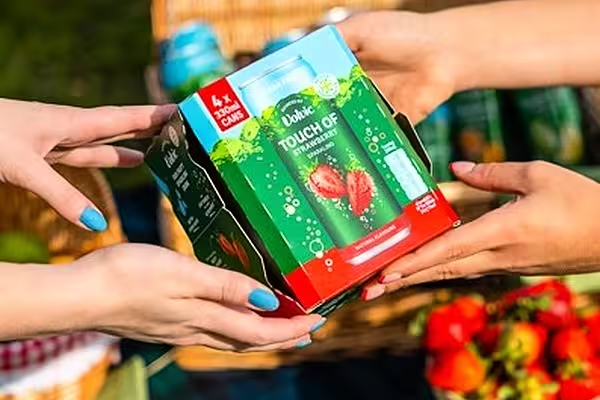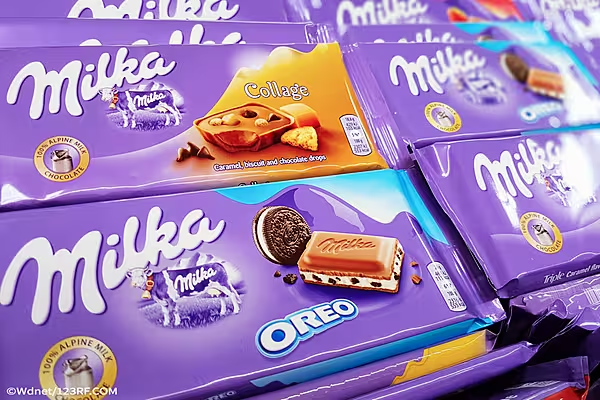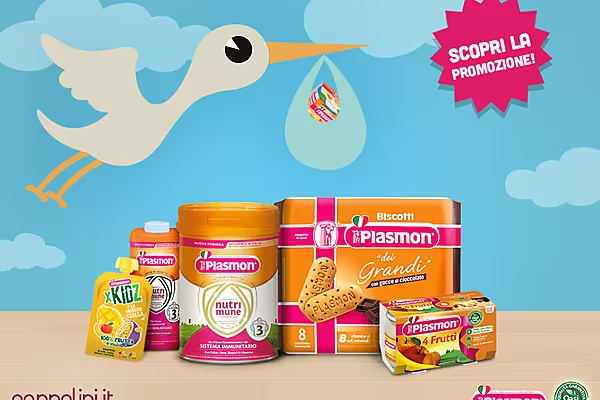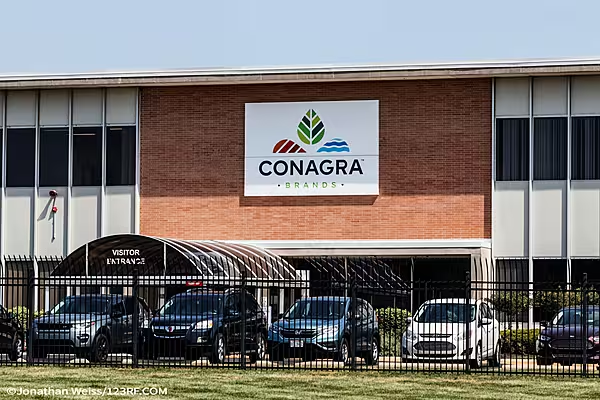Hanneke Faber joined Unilever last May, in a time of flux at the consumer goods giant – it had recently sold its spreads business, including the Becel and Flora brands, to private equity firm KKR, and was investing in the meat alternatives and healthy snacking channels, with the acquisition of The Vegetarian Butcher and Graze respectively.
In its most recent full year, while Unilever saw group sales rise by 2.9%, underlying sales growth in food and refreshments was largely driven by price increases: pricing was up by 1.7%, while volumes were down by 0.2%.
“Obviously, developing markets are seeing faster growth – that’s the same for everyone in the consumer goods market,” says Faber.
“You would expect a market like India to have market growth of 5%, for example, whereas a market like Germany or the US would be much closer to 1% or 2%.
But within Unilever, the foods and refreshment businesses have a larger footprint in developed markets – more than half of our business is in developed markets. And within that, we are starting to see momentum, in ice cream, for example. While we are not expecting double digit growth, we are picking up share and remaining competitive.”
Portfolio Transformation
Unilever has sought to evolve its portfolio in recent years through a series of acquisitions and disposals, as part of what CEO Alan Jope has described as “portfolio evolution”.
While the Unilever of old might have been considered a somewhat bloated conglomerate, the company of the future will be streamlined around core growth segments. “We’ve made about 10 acquisitions in foods in recent years, and we have a big one – the Horlicks India acquisition – due to close in the Spring,” says Faber.
“That is a great example of portfolio transformation – it is in a developing market, and it sits in a space that is fast-growing: targeted nutrition. From a geographical and a segment point of view, we are really excited about that acquisition. We will continue to look for future acquisitions in fast-moving segments, but we will also be looking at areas in which growth is likely to be slower in the future, like we did with spreads, and evaluating whether these businesses might be better off with different owners or with different constructs.”
Green – And Herbal – Is The New Black
One Unilever segment that is certainly coming under scrutiny is tea, with Unilever announcing in January that it is undertaking a strategic review of the business. As Jope admitted in a recent analyst conference, the group’s “disproportionate large footprint” in the slow-moving black tea category is hampering growth. “There has been a lot of effort in shifting the portfolio towards the growth spaces, such as green tea and herbal tea,” says Faber.
“But at the same time, we understand that we need to do a significant strategic review of the largest part of that business, which still sits in black tea.”
She points to the acquisition of Pukka, the organic herbal tea business, in 2018, as evidence of how the group is seeking to move the goalposts when it comes to legacy categories. “Pukka is a great acquisition for us,” she says. “It’s one of the best-looking brands in the world, and it has seen high double-digit growth. We’re doing other things in that space as well, with the acquisition of the T2 business in Australia, TAZO in the US, and, of course, the Lipton brand.”
Developing A Plant-Based Presence
At the same time, the acquisition of The Vegetarian Butcher, which was completed last January, encapsulates the future direction of Unilever’s food operation. “Clearly, plant- based is the number one place where we would like to develop more of a presence,” says Faber.
“There are two reasons for this – we eat too much meat in the western world, and the meat industry is having a significant impact on the environment. It is not that everyone should become a vegetarian; it is more the case that plant-based is not just better for people’s health, it is also much needed for the planet.
Secondly, it is not anew area for us. Yes, we have just acquired The Vegetarian Butcher, but over the past 10 years, we have undertaken outstanding research into meat and dairy replacements. We are the leader in vegan mayonnaise, for example, and we are by far the leaders in vegan ice cream. Meat replacement is a bit harder, because it takes some real science to get it right, but it’s a clear focus for us.”
Influencing Dietary Habits
As she explains, Unilever is keen to become “more public” about its efforts to influence consumer dietary habits, as well as address the wider social context that underpins food consumption.
One of the group’s macro projects is the Future 50 programme, in conjunction with the WWF, which promotes 50 food ingredients that are going to be part of consumers’ diets in the years to come – algae, quinoa, alfalfa and buckwheat are among those to feature. “More and more, we’re putting these into our Knorr recipes, and into our products, and getting people to eat differently, while still maintaining a great taste,” says Faber.
Unilever is also making changes to its marketing approach in order to address societal concerns.
Having already committed to removing advertising from online platforms that allow ‘toxic’ content, it recently pledged to stop advertising its food brands to children under 12 (or under 13 on social media) by the end of the year. While this could affect sales in categories such as ice cream, the group sees it as the morally correct thing to do.
Since taking over as chief executive in January of last year, Jope has sought to ‘drive purpose’ into Unilever’s brand portfolio, identifying this as one of the group’s fundamental growth drivers. “There’s a lot of competition in the marketplace, and if you’re standing in front of a shelf with, say, 14 different types of mayonnaise, you’re going to have to make a choice,” says Faber.
“That is why we feel it is important to focus on more than just performance, and to make sure that our brands are focused on their purpose as well. It is not something that we have just invented, either – taking The Vegetarian Butcher as an example, it was founded by Jaap Korteweg, a ninth-generation butcher, in response to the swine flu epidemic of the late 1990s.
He set out to develop a great-tasting meat alternative and developed it into a successful business. That is a great example of purpose. At Unilever, we now have the opportunity to build on that.” But could this sense of ‘purpose’ lead to increased prices for the shopper? “I would say our pricing is coming in at just below inflation, so it’s not like we’re way out of line, or bringing premium pricing to the market,” says Faber. “Sometimes, consumers are willing to pay a little bit more, but often they’re not, and they expect brands to meet their needs.”
A Hive Of Healthy Innovations
The group’s new global foods innovation centre, Hive, which opened last December at Wageningen University, will be a key asset in the development of future food innovation at Unilever.
Faber says that it is “recognised worldwide as one of the number one food universities.” Costing €85 million to develop, the facility will act as a platform to ‘drive innovations that are healthier for the people and for the planet’, as a recent press release put it. “It’s an open centre, right in the middle of the campus – students or faculty members can walk in and participate,” she says.
“For us, it’s about fostering new partnerships with start-ups and academia to drive innovation. In addition, as a major company, we have a responsibility to work with partners in government and NGOs to address issues such as climate change, obesity, nutrition and feeding the planet. Governments can’t do everything themselves, and we have a real role to play.”
The centre should also enable Unilever to “stay flexible and agile” in an increasingly complex marketplace – who could have predicted the coronavirus’ impact at the start of the year? – and enable Faber and her team to focus on medium- to long-term goals.
“I think the plant-based space is going to become really important for us, as well as targeted nutrition, and out of home,” she says. “But for us, the bigger prize is around ‘doing well by doing good’ and being a force for good in terms of food transformation.”
© 2020 Checkout – your source for the latest Irish retail news. Click sign-up to subscribe to Checkout.
